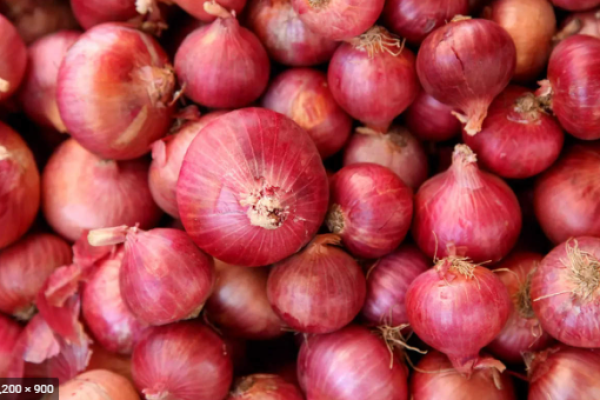In a significant development, the Indian government has granted approval for the export of 64,400 tonnes of onions to the United Arab Emirates (UAE) and Bangladesh through the National Cooperative Exports Ltd (NCEL). This decision comes as a relief to onion exporters and marks a shift from the earlier ban imposed on onion exports.
The announcement was made through notifications issued by the Ministry of Commerce and Industry, signaling a change in the government’s stance on onion exports. The government has allocated 50,000 tonnes of onions for export to Bangladesh and 14,400 tonnes to the UAE, indicating a strategic move to maintain trade relations with these countries.
The permission for onion exports comes after the government imposed a ban on exports until March 31, 2024, in a bid to stabilize domestic onion prices. The ban, which was implemented on December 8, 2023, aimed to prevent a shortage of onions in the domestic market and ensure an adequate supply for consumers across the country.
However, the recent decision to allow onion exports demonstrates the government’s confidence in the stability of the onion market and its commitment to fulfilling international trade obligations. The Directorate General of Foreign Trade (DGFT) issued a notification specifying the quantity of onions permitted for export to each destination.
According to the notification, the export of 14,400 tonnes of onions to the UAE will be facilitated through the NCEL, with a quarterly quantity ceiling of 3,600 metric tonnes. This move highlights the government’s efforts to facilitate trade partnerships with the UAE, a significant importer of agricultural products from India.
Similarly, the allocation of 50,000 tonnes of onions for export to Bangladesh underscores the importance of bilateral trade between the two countries. Bangladesh has been a key market for Indian onions, and the resumption of exports will strengthen economic ties and support farmers in both countries.
It is worth noting that while the government had imposed a ban on onion exports, it allowed exceptions based on specific requests from other countries. This flexibility in trade policy reflects the government’s willingness to address the needs of trading partners while ensuring the stability of the domestic market.
The decision to permit onion exports comes after a series of measures aimed at stabilizing onion prices and addressing supply-demand dynamics in the domestic market. In October 2023, the government imposed a minimum export price of $800 per tonne to curb excessive exports and prevent onion shortages.
Additionally, a 40% duty was levied on onion exports in August 2023 to discourage exports and prioritize domestic consumption. These measures were implemented in response to fluctuating onion prices and concerns about food security in India.
Despite these interventions, onion prices remained volatile, prompting the government to explore alternative solutions to balance supply and demand. The decision to release onions from the buffer stock and resume exports reflects a strategic approach to addressing market dynamics and supporting agricultural trade.
The government’s buffer stock of onions plays a crucial role in stabilizing prices and ensuring adequate supply during periods of volatility. By maintaining a buffer stock of onions, the government can respond swiftly to market fluctuations and mitigate the impact of external factors on onion prices.
The Indian government’s decision to permit onion exports to the UAE and Bangladesh signifies a shift in trade policy and reflects confidence in the stability of the onion market. This move is expected to benefit onion exporters, support bilateral trade relations, and contribute to the overall resilience of India’s agricultural sector.














